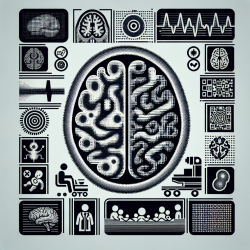Introduction
The transformative power of postnatal care (PNC) has been underutilized due to suboptimal uptake and quality. A recent rapid review, "Integrating international policy standards in the implementation of postnatal care," published in BMJ Global Health, offers valuable insights for practitioners seeking to enhance their skills and improve outcomes for mothers and newborns. This blog will explore the key findings of the review and provide actionable steps for practitioners to leverage these insights in their practice.
Understanding the Research
The review aimed to map and summarize international legal and political documents relevant to the implementation of WHO recommendations on maternal and newborn care. It identified 29 documents out of 45 that were captured, which contained content relevant to the WHO PNC recommendations. These documents were primarily focused on breastfeeding, health systems interventions, and service delivery arrangements.
The study highlights the importance of international legal and political documents in creating an enabling environment for PNC. These documents align with human rights principles, emphasizing the right to health and social security, which are crucial for the well-being of women and newborns.
Key Findings for Practitioners
- Breastfeeding Support: The review found that international documents frequently address breastfeeding, underscoring the need for supportive policies and environments. Practitioners can advocate for breastfeeding-friendly practices and environments in their healthcare settings.
- Health Systems and Service Delivery: The documents emphasize the importance of robust health systems and service delivery arrangements. Practitioners should work towards integrating PNC into existing health systems, ensuring that services are accessible and culturally appropriate.
- Human Rights Framework: The integration of human rights principles into PNC is vital. Practitioners should be aware of these rights and advocate for policies that protect and promote the health and well-being of mothers and newborns.
Actionable Steps for Practitioners
Practitioners can take several steps to implement the findings of this review:
- Advocate for Policy Changes: Engage with policymakers to advocate for the adoption of international standards in national policies. This includes promoting breastfeeding, ensuring access to PNC services, and protecting maternal and newborn health rights.
- Enhance Training and Education: Invest in training programs that educate healthcare providers on the importance of PNC and the integration of human rights principles into care practices.
- Collaborate with Stakeholders: Work with government agencies, non-governmental organizations, and community groups to create supportive environments for PNC. Collaboration can lead to more comprehensive and effective care strategies.
Encouraging Further Research
While the review provides a comprehensive mapping of international documents, there is a need for further research to explore the implementation of these standards at the national and local levels. Practitioners are encouraged to participate in research initiatives and contribute to the evidence base on effective PNC practices.
Conclusion
Integrating international policy standards into postnatal care is crucial for improving health outcomes for mothers and newborns. By leveraging the findings of this review, practitioners can enhance their practice and advocate for policies that support a positive postnatal experience. To read the original research paper, please follow this link: Integrating international policy standards in the implementation of postnatal care: a rapid review.










